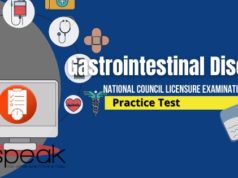- Answer: Accountability
Rationale: Accountability can be referred to as a nurse’s ability to answer for his own actions. If the nurse knows that his client is still not knowledgeable in using his cane, he might request for more hospitalization or arrange with his caregiver to continue providing health teaching at home.
- Answer:
Rationale: The statement should be: I have the right to be free from pain.
- Answer: Values
Rationale: Ethics refers to the study of what is good and just for clients, while morals reflect the character of the social setting from where the client bases his behavior. Bioethics, on the other hand, pertains to the study of what is right and wrong behavior in the healthcare setting.
- Answer: R.A. No. 8191
Rationale: Option A refers to the promotion of salt iodization; B pertains to the Philippine Food Fortification Program; and C corresponds to the 7- day Paternity leave.
- Answer: Veracity
Rationale: Veracity guides the practice of truth. On the other hand, autonomy is the client’s right to decision making; Beneficence refers to actions that prevent harm, and the principle of double effect pertains to outweighing the harmful secondary effects by the intended good outcomes.
- Answer: Section 8
Rationale: Section 11 involves the nursing ethics with his co-workers; section 10 ethical guidelines requiring professional conformity with existing laws; section 9 reflects that nurses should be aware that their actions have corresponding ethical, moral, and legal aspects.
- Answer: 7
Rationale: According to the Philippine Nursing Act of 2002 or R.A. No. 9173, section 4. The Board created under section 3 of Article III of the said nursing act is composed of a chairperson and 6 members.
- Answer:
Rationale: Answer B refers to the qualification of a Chief Nurse/ Director of Nursing
- Answer: the code of ethics for registered nurses
Rationale: Under section 10 of the code of ethics, a registered nurse must not allow herself to be used in advertisements that should demean the image of the profession.
- Answer: Nurse Manager Jeremy
Rationale: Nurse Fred was the Principal who committed the direct harm to the client, while nurse Milo was an Accomplice. Nurse Manager Jeremy tried to conceal the escape of his staff members by discreetly arranging the resolution with the client’s family members.
- Answer: Disagreeing with the physician
Rationale: Disagreeing with the physician; especially knowing what is good and right for the client and rationalizing it to his physician, does not mean negligence since there is no unreasonable risk for harming the client, there is no failure to perform any task, and no physical, emotional, or mental damage to the client.
- Answer: Assault
Rationale: Threatening the client to submit himself to therapy or treatment he did not want is considered an assault as long as no physical harm was done since it could then be referred to as battery.
- Answer: All of the Above
Rationale: All the options above describe an informed consent. The client must be informed of all the relevant information, They must be of legal age reflected on option B, and parents sign the consent form for pediatric clients.
- Answer: Holographic will
Rationale: A notarial will is only signed by the testator or by another person in the presence of the testator, while a nuncupative will is also called an oral will.
- Answer:
Rationale: Option A refers to BON Res. No. 14 s. 1999, C corresponds to BON Res. No. 08 s. 1994, and option D pertains to PRC- BON Res. No. 82 s. 1998.
- Answer: R.A. 7600
Rationale: P.D. 148 is called Woman and child labor law; R.A. 7432 is about Senior Citizen’s Act, and R.A. 7877 corresponds to Anti sexual harassment act of 1995.
- Answer: Beneficence
Rationale: Beneficence focuses on promoting the best interest of the client despite some risks like discomfort.
- Answer:
Rationale: To be a faculty of the college of nursing: one must be an R.N. in the Philippines, have at least 1 year of clinical practice, a member of good standing in an organization for nurses, and must have a master’s degree in nursing, education, or any allied medical or health sciences.
- Answer:
Rationale: GG is of legal age, but she has postpartum psychosis, implying that she is not of sound mind. A person should have a sound mind at the time of execution of the will.
- Answer: Subpoena testificandum
Rationale: This subpoena is given to witnesses and respondents to appear in court while subpoena duces tecum is issued in order for respondents to produce necessary documents.
- Answer: Naturalization
Rationale: Expatriation is the voluntary act of abandoning one’s country and become a citizen of another country; repatriation refers to regaining one’s nationality after expatriation; an alien is also known as a foreigner or a person born abroad.
- Answer: A & B
Rationale: The 4 fundamentals of nursing include promotion of health, prevention of illness, alleviation of suffering, and restoration of health.
- Answer:
Rationale: An incident report is to document an unusual occurrence or incident. It is not advised to be written in the nurse’s notes, is not a means of punishment, and it is filed to protect the individual involved.
- Answer: 75%
Rationale: According to section 15 of R.A. 9173, an examinee needs to reach at least a 75% general average to pass the exam.
- Answer: R.A. 3573
Rationale: It corresponds to reporting communicable diseases. R.A. 7610 refers to the law against child abuse, R.A. 1082 pertains to the Rural health act, and R.A. 1811 pertains to strengthening health and dental services to rural areas.








hello po, may I ask anong reference ginamit dito? Thankyou po!
Hello ma’am san po makita yung answer po?
Answers and rationale
Helpful
thanks Rohanie.=)